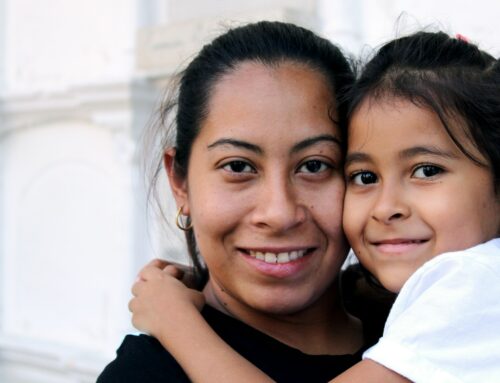As a Canadian resident or citizen, you can sponsor relatives for a Family Class Visa. Through this program, parents can sponsor their children, and husbands or wives can sponsor their spouses. The program even applies to adopted children and to same-sex couples. Also, parents and grandparents of a Canadian citizen or permanent resident can qualify for what’s called a Super Visa.
Keeping Families Together
The Canadian government and the IRCC (Immigration, Refugees and Citizenship Canada) place a high priority on keeping families together and respecting the family unit. If one family member comes to Canada and becomes a permanent resident, it’s pretty easy for other family members to join them. In the interest of reuniting families, Canada’s Family Class Visa is one of the world’s most generous of such immigration programs.
Visit the government website for complete details or to apply for any of these programs.
Who is eligible for Family Class Sponsorship?
If you are living in Canada as a citizen or permanent resident, and at least 18 years old, you can sponsor certain relatives to become permanent residents of Canada. This allows them to live, work and study in Canada. They may also apply for Canadian citizenship if they wish to do so.
Eligible relatives include spouses, common-law partners and dependent children.
Spousal Sponsorship
Qualified candidates must be able to prove their relationship to their sponsor, as a spouse, common-law partner, or conjugal partner. Canada also recognizes same-sex marriage and same-sex partners. Sponsors are financially responsible for the person they sponsor for three years.
There are essentially two ways to apply, depending whether the candidate is already residing in Canada or still living abroad.
- Inland Sponsorship: For partners living in Canada with temporary visitor status. While the application is being processed, the applicant can apply for an Open Work Permit. This would allow them to seek work anywhere in the country.
- Outland Sponsorship: This is the pathway for partners still living outside of Canada. The applicant can travel in out of Canada during the application process.
Dependent Child Sponsorship
Usually temporary workers and other immigrants can bring their families and children with them when they move to Canada. But in certain cases they have to apply for a separate visa. The Family Class Dependent Child Sponsorship Program is meant to expedite this process. The IRCC gives these applicants a high priority, recognizing the great importance of keeping families and loved ones together.
Sponsors and their children must be able to prove their relationships. Canadian residents and citizens can also sponsor children they are adopting, either inside of Canada or abroad. Once the adoption procedures are under way, sponsors may begin the application process for the Family Class Visa.
Parent and Grandparent Sponsorship
An immigrant who has attained permanent residence or Canadian citizen can sponsor their parents and grandparents to become residents through this special immigration stream. To qualify as sponsor, individuals must also be at least 18 years old and meet a Minimum Necessary Income (MNI) for the three consecutive tax years. The sponsor assumes financial responsibility for 20 years from when permanent residence is issued. Sponsors may be disqualified if they have declared bankruptcy, failed to pay back loans, are in jail, or have been convicted of a violent crime.
Parent and Grandparent Super Visas
The Super Visa is a special long-term visitor’s visa that’s good for 10 years and allows multiple visits and re-entry. It is available to the parents and grandparents of Canadian citizens and residents who don’t necessarily wish to stay in Canada permanently. Super Visa holders can stay up to two years at a time.
Sponsors must pledge financial support and meet the Minimum Necessary Income (MNI). Super Visa holders are also required to obtain Canadian health insurance.
Provincial Nominee Programs for Family Class
Most provinces also offer Family Class revenue streams will slightly different requirements to the federal immigration programs. Check out our comprehensive article on Provincial Nominee Programs in Canada for more details.
Further reading
To learn more about Canadian immigration and the relocation process, have a look at some of our other popular articles.
- Canadian Immigration Programs
- Finding an Immigration Consultant you can trust
- Moving to Canada with a family
- Moving to Canada and finding a job
- Where to live when moving to Canada
PHOTO CREDIT: Chris Child (Unsplash)







Leave A Comment